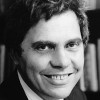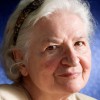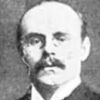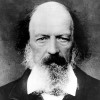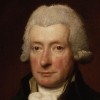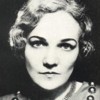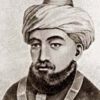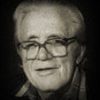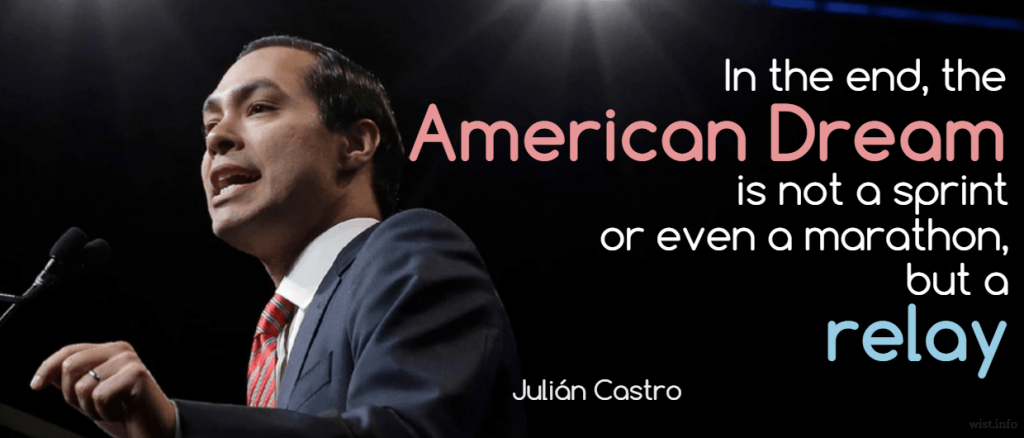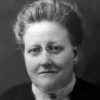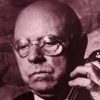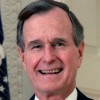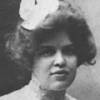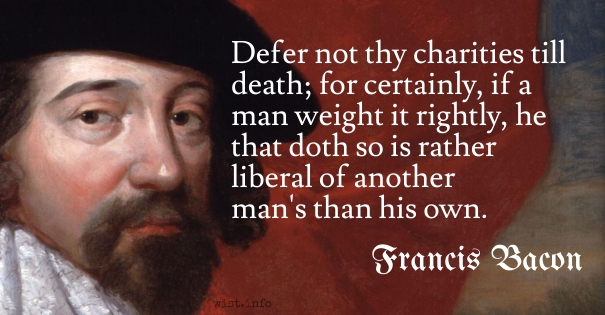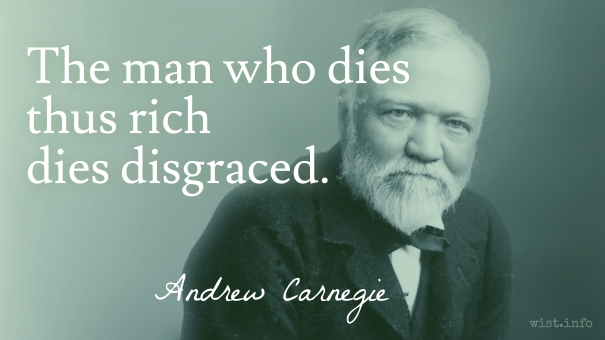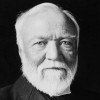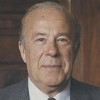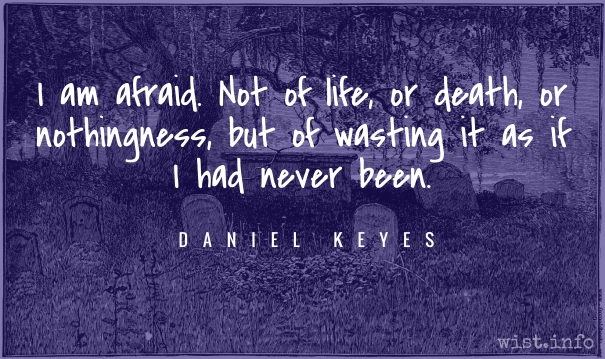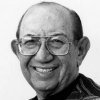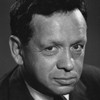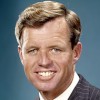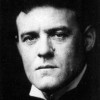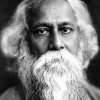Parents lend children their experience and a vicarious memory; children endow their parents with a vicarious immortality.
George Santayana (1863-1952) Spanish-American poet and philosopher [Jorge Agustín Nicolás Ruíz de Santayana y Borrás]
The Life of Reason, “Reason in Society,” ch. 2 “The Family” (1905-06)
(Source)
Quotations about:
legacy
Note not all quotations have been tagged, so Search may find additional quotes on this topic.
I don’t think he had known much demonstrative love in his childhood and what a child doesn’t receive he can seldom later give.
P. D. James (1920-2014) British mystery writer [Phyllis Dorothy James White]
Time To Be in Earnest: A Fragment of Autobiography, “Diary 1997” (1999)
(Source)
Writing of her father. Often just the last half of this quote is given ("What a child ...").
He called to mind all the millionaires he had ever read or heard of; they didn’t seem to get much fun out of their riches. The majority of them were martyrs to dyspepsia. They were often weighed down by the cares and responsibilities of their position; the only people who were unable to obtain an audience of them at any time were their friends; they lived in a glare of publicity, and every post brought them hundreds of begging letters, and a few threats; their children were in constant danger from kidnappers, and they themselves, after knowing no rest in life, could not be certain that even their tombs would be undisturbed. Whether they were extravagant or thrifty, they were equally maligned, and, whatever the fortune they left behind them, they could be absolutely certain that, in a couple of generations, it would be entirely dissipated.
F. Anstey (1856-1934) English novelist and journalist (pseud. of Thomas Anstey Guthrie)
The Brass Bottle, ch. 7 (1900)
(Source)
You and I are old;
Old age hath yet his honour and his toil;
Death closes all: but something ere the end,
Some work of noble note, may yet be done,
Not unbecoming men that strove with Gods.
Children hold us hostage; they represent our commitment to the future.
Barbara Grizzuti Harrison (1934-2002) American journalist, essayist, memoirist
Italian Days, ch. 1 (1989)
(Source)
Earthly riches can neither bless us nor our children with happiness; we must either lose them in this life or leave them to be enjoyed after our death by one, we cannot tell whom, perhaps by those we would not should have them.
[Felices enim uel nos uel filios nostros non diuitiae terrenae faciunt aut nobis uiuentibus amittendae aut nobis mortuis a quibus nescimus uel forte a quibus nolumus possidendae.]Augustine of Hippo (354-430) Christian church father, philosopher, saint [b. Aurelius Augustinus]
City of God [De Civitate Dei], Book 5, ch. 18 (5.18) (AD 412-416) [tr. Healey (1610)]
(Source)
(Source (Latin)). Alternate translations:
For it is not earthly riches which make us or our sons happy; for they must either be lost by us in our lifetime, or be possessed when we are dead, by whom we know not, or perhaps by whom we would not.
[tr. Dods (1871)]
The riches of this earth can make neither us nor our children happy, if they are to be lost while we are alive or, after we are dead, are to pass to people we do not know or, perhaps, dislike.
[tr. Zema/Walsh (1950)]
For neither we nor our children are made happy by earthly riches, since they are bound either to be lost while we are living or to be acquired after our death by persons unknown and perhaps unwelcome.
[tr. Green (Loeb) (1963)]
Happiness, whether for us or for our children, is not the result of earthly riches, which must either be lost by us in our lifetime or else must pass after our death into the possession of those we do not know or, it may be, of those whom we do not wish to have them.
[tr. Bettenson (1972)]
For neither we nor our sons are made happy by earthly riches. These things must either be lost while we are still alive or, after we are dead, acquired by someone whom we do not know, or perhaps by someone whom we would not wish to have them.
[tr. Dyson (1998)]
For earthly riches do not make either us or our children happy; they will either be lost while we are still alive or will pass, after our death, to someone we do not know or even to someone we do not want.
[tr. Babcock (2012)]
I must study Politicks and War that my sons may have liberty to study Mathematicks and Philosophy. My sons ought to study Mathematicks and Philosophy, Geography, natural History, Naval Architecture, navigation, Commerce and Agriculture, in order to give their Children a right to study Painting, Poetry, Musick, Architecture, Statuary, Tapestry and Porcelaine.
John Adams (1735-1826) American lawyer, Founding Father, statesman, US President (1797-1801)
Letter to Abigail Adams (1780-05-12 to 15)
(Source)
This thing of being a hero, about the main thing to it is to know when to die. Prolonged life has ruined more men that it ever made.
Books are the legacies that a great genius leaves to mankind, which are delivered down from generation to generation, as presents to the posterity of those who are yet unborn.
Joseph Addison (1672-1719) English essayist, poet, statesman
The Spectator #166 (1711-09-10)
(Source)
All has its date below; the fatal hour
Was register’d in Heav’n ere time began.
We turn to dust, and all our mightiest works
Die too.William Cowper (1731-1800) English poet
The Task, Book 5 “The Winter Morning Walk,” l. 529ff (1785)
(Source)
The past is never dead. It’s not even past.
William Faulkner (1897-1962) American novelist
Requiem for a Nun, Act 1, sc. 3 [Stevens] (1951)
(Source)
Sometimes misquoted as "The past isn't over. It isn't even past."
“Here is where you can’t afford to be lazy,”
My Master said. “Lying in feather beds,
Or under quilts, no one conquers fame,
Without which, once your earthly life is dead,
The only traces you leave behind you are smoke
Blown in the air or bubbles breaking in water.[“Omai convien che tu così ti spoltre”,
disse ’l maestro; “ché, seggendo in piuma,
in fama non si vien, né sotto coltre;
sanza la qual chi sua vita consuma,
cotal vestigio in terra di sé lascia,
qual fummo in aere e in acqua la schiuma.”]Dante Alighieri (1265-1321) Italian poet
The Divine Comedy [Divina Commedia], Book 1 “Inferno,” Canto 24, l. 46ff (24.46-51) [Virgil] (1309) [tr. Raffel (2010)]
(Source)
The analogy of life to smoke and foam have been noted by commentators as resembling similar metaphors in Wisdom 2:1-4 and 5:14 and the Aeneid 5.740.
Virgil's urging of Dante to continue on out of a desire for fame, rather than to learn how to be saved or to come closer to God, have only recently been interpreted as an intentional showing that the poet/guide is not perfect -- another reason, beyond being only a virtuous pagan, that he cannot complete the journey with Dante to Paradise. (See here for more commentary on this.)
(Source (Italian)). Alternate translations:
It now is proper, said my Lord, that you
Should from this bed of yours arise; for they
Ne'er Fame acquire who spend their lives in down:
He who, without pursuing her, consumes
His time, leaves himself such tracts behind,
As Froth in Water, or as Smoke in Air.
[tr. Rogers (1782), ll. 44-49]
Arise! -- In vain the slumb'ring soul aspires,
(Her powers betray'd by sloth, extinct her fires)
In vain she tries the dazzling heights of fame:
As morning fogs disperse to meet no more,
As the waves close behind the lab'ring oar,
The dastard soul expires without a name!
[tr. Boyd (1802), st. 9]
“Now needs thy best of man;” so spake my guide:
“For not on downy plumes, nor under shade
Of canopy reposing, fame is won,
Without which whosoe’er consumes his days
Leaveth such vestige of himself on earth,
As smoke in air or foam upon the wave."
[tr. Cary (1814)]
"Rouse thee," my master urged, "'tis time to throw
This lethargy aside; who dozing lies
'Tween coverlet and feathers, ne'er shall know
Renown, and without her who wastes and dies,
Leaves of himself like trace on earth behind,
As foam on wave, or vapour on the skies."
[tr. Dayman (1843)]
"Now it behooves thee thus to free thyself from sloth," said the Master: "for sitting on down, or under coverlet, man come not into fame;
without which whoso consumes his his life, leaves such vestige of himself on earth, as smoke in air or foam in water."
[tr. Carlyle (1849)]
"Henceforth you must abandon indolence,"
My master said: "'tis not repose on plumes
That leads to fame -- nor yet in shady glooms;
Without the which if one consumes his life,
E'en such a vestige upon the earth he'll make
As smoke in air, or foam on water's track."
[tr. Bannerman (1850)]
"Now it befits thee to shake off this sloth,"
The Master said, "for resting upon down,
And under quilts is not the way to fame;
And without this he who his life consumes,
Leaves of himself on earth no better trace,
Than smoke in air or on the water foam."
[tr. Johnston (1867)]
"Now it behoves thee thus to put off sloth,"
My Master said; "for sitting upon down,
Or under quilt, one cometh not to fame,
Without which whoso his life consumes
Such vestige leaveth of himself on earth,
As smoke in air or in the water foam."
[tr. Longfellow (1867)]
"Henceforward it behoves that thou brace thyself thus," said the Master; "for not by sitting on feathers does one come into fame, nor under quilts; without the which whoso consumes his life leaves such trace on earth of himself as smoke in air or its froth on water."
[tr. Butler (1885)]
"Henceforth 'tis fitting thou shouldst shake off sloth,"
The master cried, "since idly lapt in down
'Neath coverlets, for him Fame never groweth.
Who so his life consumes without renown.
Leaves such a vestige of himself on earth,
As it were froth on air or water blown."
[tr. Minchin (1885)]
“Now it behoves thee thus to put off sloth,” said the Master, “for, sitting upon down or under quilt, one attains not fame, without which he who consumes his life leaves of himself such trace on earth as smoke in air, or in water the foam."
[tr. Norton (1892)]
"'Tis thus that thou must now shake thyself free from sloth," my Master said, "for seated on down, or under coverlet, man cometh not to fame; unattended by which whoso doth spend his days, leaveth such traces of himself on earth, as smoke in air or foam on water."
[tr. Sullivan (1893)]
"Thus must thou ever shake off sloth henceforward;"
The Master said, " for sitting upon feathers
Man cometh not to fame, nor under quilting;
Which lacking, whosoe'er consumes his life-time
Leaves of himself on earth just such a vestige
As smoke doth leave in air, and foam in water."
[tr. Griffith (1908)]
"Now must thou thus cast off all sloth," said the Master "for sitting on down or under blankets none comes to fame, and without it he that consumes his life leaves such trace of himself on earth as smoke in air or foam on water."
[tr. Sinclair (1939)]
"Now it behoveth lassitude to leave,"
The Master said, "for softly on down reclined
Or under coverlet, none can fame achieve,
Without which he who dallieth leaves behind
Such vestige of himself on earth imprest
As foam in water or smoke upon the wind."
[tr. Binyon (1943)]
"Put off this sloth," the master said, "for shame!
Sitting on feather-pillows, lying reclined
Beneath the blanket is no way to fame --
Fame, without which man's life wastes out of mind,
Leaving on earth no more memorial
Than foam in water or smoke upon the wind."
[tr. Sayers (1949)]
"Up on your feet! This is no time to tire!"
my Master cried. "The man who lies asleep
will never waken fame, and his desire
and all his life drift past him like a dream,
and the traces of his memory fade from time
like smoke in the air, or ripples on a stream."
[tr. Ciardi (1954)]
“Now it behooves you thus to cast off sloth,” said my master, “for sitting on down or under coverlet, no one comes to fame, without which whoso consumes his life leaves such vestige of himself on earth as smoke in air or foam on water."
[tr. Singleton (1970)]
"Come on, shake off the covers of this sloth,"
the master said, "for sitting softly cushioned,
or tucked in bed, is no way to win fame;
and without it man must waste his life away,
leaving such traces of what he was on earth
as smoke in wind and foam upon the water."
[tr. Musa (1971)]
“Now you must cast aside your laziness,”
my master said, “for he who rests on down
or under covers cannot come to fame;
and he who spends his life without renown
leaves such a vestige of himself on earth
as smoke bequeaths to air or foam to water."
[tr. Mandelbaum (1980)]
"Now is the time for you to rouse yourself,"
The master said; "for sitting on a cushion
Is not the way to fame, nor staying in bed;
And without fame, a man must spend his life
Only to leave such traces upon earth
As smoke leaves in the air, or foam in the water."
[tr. Sisson (1981)]
"To cast off sloth
Now well behooves you," said my master then:
"For resting on soft down, or underneath
The blanket's cloth, is not how fame is won --
Without which, one spends life to leave behind
As vestige of himself on earth the sign
Smoke leaves on air, or foam on water."
[tr. Pinsky (1994), l. 46ff]
“From now on you will have to cast off sloth in this way,” said my master, “for one does not gain fame sitting on down cushions, or while under coverlets;
and whoever consumes his life without fame leaves a mark of himself on earth like smoke in the air or foam in water."
[tr. Durling (1996)]
Now, you must free yourself from sloth: men do not achieve fame, sitting on down, or under coverlets; fame, without which whoever consumes his life leaves only such trace of himself, on earth, as smoke does in the air, or foam on water.
[tr. Kline (2002)]
"Now you must needs," my teacher said, "shake off
your wonted indolence. No fame is won
beneath the quilt or sunk in feather cushions.
Whoever, fameless, wastes his life away,
leaves of himself no greater mark on earth
than smoke in air or froth upon the wave."
[tr. Kirkpatrick (2006)]
'Now must you cast off sloth,' my master said.
'Sitting on feather cushions or stretched out
under comforters, no one comes to fame.
Without fame, he who spends his time on earth
leaves only such a mark upon the world
as smoke does on the air or foam on water.'
[tr. Hollander/Hollander (2007)]
“Now you must,”
My Guide said, “quell the slothful urge to rest.
A swansdown seat and a soft blanket just
Keep you from fame, without which no one who
Consumes his life leaves more trace in the world
Than smoke in air and foam on water do."
[tr. James (2013)]
Death cancels our engagements, but it does not affect the consequences of our acts in life.
Katherine Anne Porter (1890-1980) American journalist, essayist, author, political activist [b. Callie Russell Porter]
Letter draft to Mary Doherty (1932-10-21)
(Source)
In Isabel Bayley, ed., Letters of Katherine Anne Porter, Sec. 2 (1990). Discussing the suicide of her friend, Hart Crane.
I don’t think about whether people will remember me or not. I’ve been an okay person. I’ve learned a lot. I’ve taught people a thing or two. That’s what’s important. Sooner or later the public will forget you, the memory of you will fade. What’s important are the individuals you’ve influenced along the way.
BREVILLE: And what do you want them to say about the writer Rod Serling a hundred years from now?
SERLING: I don’t care. I just want them to remember me a hundred years from now. I don’t care that they’re not able to quote any single line that I’ve written. But just that they can say, “Oh, he was a writer.” That’s sufficiently an honored position for me.
BREVILLE: Then that’s what it all boils down to really?
SERLING: I guess we all have a little vaunting itch for immortality, I guess that must be it.
Rod Serling (1924-1975) American screenwriter, playwright, television producer, narrator
“Rod Serling: The Facts of Life,” interview by Linda Brevelle (4 Mar 1975)
(Source)
Serling's last interview. He died less than four months later.
I think of all the choices I never knew. And those I let be made for me — to please, from fear, for love. Where did they disappear to, those choices that I never made? They are all part of who I am. They are the legacy I leave behind, they are the finished portrait of myself I cannot change.
If I had omitted setting down something of that which has appeared to me as clear, so that the knowledge would perish when I perish, as is inevitable, I should have considered that conduct as extremely cowardly with regard to you and everyone who is perplexed. It would have been, as it were, robbing one who deserves the truth of the truth, or grudging an heir his inheritance. And both those traits are blameworthy.
Maimonides (1135-1204) Spanish Jewish philosopher, scholar, astronomer, physician [Moses ben Maimon, Rambam, רמב״ם]
Guide for the Perplexed, Part 3, Introduction (c. 1190) [tr. Pines (1963)]
(Source)
Alternate translation:
But if, on the other hand, I were to abstain from writing on this subject, according to my knowledge of it, when I die, as I shall inevitably do, that knowledge would die with me, and I would thus inflict great injury on you and all those who are perplexed. I would then be guilty of withholding the truth from those to whom it ought to be communicated, and of jealously depriving the heir of his inheritance. I should in either case be guilty of gross misconduct.
[tr. Friedlander (1885)]
But the best inheritance that fathers can give their children, more precious than any patrimony however large, is a reputation for virtue and for worthy deeds, which if the child disgraces, his conduct should be branded as infamous and impious.
[Optima autem hereditas a patribus traditur liberis omnique patrimonio praestantior gloria virtutis rerumque gestarum, cui dedecori esse nefas et vitium iudicandum est.]
Marcus Tullius Cicero (106-43 BC) Roman orator, statesman, philosopher
De Officiis [On Duties; On Moral Duty; The Offices], Book 1, ch. 33 (1.33) / sec. 121 (44 BC) [tr. Peabody (1883)]
(Source)
(Source (Latin)). Alternate translation:
Now the noblest inheritance that can ever be left by a father to his son, and far exceeding that of houses and lands, is the fame of his virtues and glorious actions; and for a son to live so, as is unworthy of the name and reputation of his ancestors, is the basest and most abominable thing in the world.
[tr. Cockman (1699)]
The best inheritance left by a father to his children, superior to every other patrimony, is the honor of a virtuous conduct, and the glory of his public transactions. And it is base and criminal by an unworthy conduct, to bring disgrace upon a father's reputation.
[tr. McCartney (1798)]
Now, the best inheritance a parent can leave a child -- more excellent than any patrimony -- is the glory of his virtue and his deeds; to bring disgrace on which ought to be regarded as wicked and monstrous.
[tr. Edmonds (1865)]
The noblest heritage, the richest patrimony a father can bequeath to his children is a reputation for virtue and noble deeds. To tarnish his good name is a sin and a crime.
[tr. Gardiner (1899)]
The best legacy a father can leave to his children, a legacy worth far more than the largest patrimony, is the fame of a virtuous and well-spent life. He who disgraces such a bequest is deserving of infamy.
[ed. Harbottle (1906)]
The noblest heritage, however, that is handed down from fathers to children, and one more precious than any inherited wealth, is a reputation for virtue and worthy deeds; and to dishonour this must be branded as a sin and a shame.
[tr. Miller (1913)]
The best heritage that descends from fathers to sons is the fame for honesty and great deeds. Such fame surpasses any legacy. We must judge it a crime and a shame to disgrace it.
[tr. Edinger (1974)]
A good character is the best tombstone. Those who loved you, and were helped by you, will remember you when forget-me-nots are withered. Carve your name on hearts, and not on marble.
Charles Spurgeon (1834-1892) British Baptist preacher, author [Charles Haddon (C.H.) Spurgeon]
John Ploughman’s Talk: Or Plain Advice for Plain People, “Monuments” (1869)
(Source)
Every marriage is a battle between two families struggling to reproduce themselves.
Carl Whitaker (1912-1995) American physician, psychotherapist, family therapist
(Attributed)
(Source)
Quoted in his obituary.
Language is the road map of a culture. It tells you where its people come from and where they are going.
Rita Mae Brown (b. 1944) American author, playwright
Starting from Scratch: A Different Kind of Writers’ Manual, Part 3, ch. 1 “Words as Separate Units of Consciousness” (1988)
(Source)
We open our mouths and out flow words whose ancestries we do not even know. We are walking lexicons. In a single sentence of idle chatter we preserve Latin, Anglo-Saxon, Norse: we carry a museum inside our heads, each day we commemorate peoples of whom we have never heard.
In the end, the American Dream is not a sprint or even a marathon, but a relay.
Julián Castro (b. 1974) American politician and lawyer
Speech, Democratic National Convention, Charlotte, North Carolina (2012-09-04)
(Source)
Many of the ugly pages of American history have been obscured and forgotten. A society is always eager to cover misdeeds with a cloak of forgetfulness, but no society can fully repress an ugly past when the ravages persist into the present. America owes a debt of justice which it has only begun to pay. If it loses the will to finish or slackens in its determination, history will recall its crimes and the country that would be great will lack the most indispensable element of greatness — justice.
Martin Luther King, Jr. (1929-1968) American clergyman, civil rights leader, social activist, preacher
Where Do We Go from Here: Chaos or Community? (1967)
(Source)
Each second we live is a new and unique moment of the universe, a moment that will never be again. And what do we teach our children in school? We teach them that two and two make four and that Paris is the capital of France. When will we also teach them what they are? We should say to them: Do you know what you are? You are a marvel. You are unique. In all the years that have passed, there has never been another child like you. And look at your body — what a wonder it is! Your legs, your arms, your clever fingers, the ways you move. You may become a Shakespeare, a Michelangelo, a Beethoven. You have the capacity for anything. Yes, you are a marvel. And when you grow up, can you then harm another who is, like you, a marvel? You must work — we must all work — to make the world worthy of its children.
Posthumous charities are the very essence of selfishness, when bequeathed by those who, when alive, would part with nothing.
Charles Caleb "C. C." Colton (1780-1832) English cleric, writer, aphorist
Lacon: or, Many Things in Few Words, #341 (1820)
(Source)
In youth, the years stretch before one so long that it is hard to realize that they will ever pass, and even in middle age, with the ordinary expectation of life in these days, it is easy to find excuses for delaying what one would like to do but does not want to; but at last a time comes when death must be considered.
W. Somerset Maugham (1874-1965) English novelist and playwright [William Somerset Maugham]
The Summing Up, ch. 3 (1938)
(Source)
We have a place, all of us, in a long story. A story we continue, but whose end we will not see. It is the story of a new world that became a friend and liberator of the old, a story of a slave-holding society that became a servant of freedom, the story of a power that went into the world to protect but not possess, to defend but not to conquer.
George H. W. Bush (1924-2018) American politician, diplomat, US President (1989-1993)
Inaugural Address (20 Jan 1989)
(Source)
Defer not thy charities till death; for certainly, if a man weight it rightly, he that doth so is rather liberal of another man’s than his own.
Francis Bacon (1561-1626) English philosopher, scientist, author, statesman
“Of Riches,” Essays, No. 34 (1625)
(Source)
ANTONY: The evil men do lives after them;
The good is oft interred with their bones.William Shakespeare (1564-1616) English dramatist and poet
Julius Caesar, Act 3, sc. 2, l. 84ff (3.2.84-85) (1599)
(Source)
When I think about all the money we spent on bombs and munitions, and our failures in Viet Nam, Iraq, Afghanistan and other places around the world … Instead of advancing our agenda using force, we should have instead built schools and hospitals in these countries, improving the lives of their children. By now, those children would have grown into positions of influence, and they would be grateful to us instead of hating us.
George Shultz (b. 1920) American economist, statesman, and businessman
(Attributed)
(Source)
Quoted in In Daniel Levitin, The Organized Mind (2014).
You never can tell when you do an act
Just what the result will be;
But with every deed you are sowing a seed,
Though the harvest you may not see.Ella Wheeler Wilcox (1850-1919) American author and poet.
“You Never Can Tell,” Custer And Other Poems (1896)
(Source)
The only things in which we can be said to have any property are our actions. Our thoughts may be bad, yet produce no poison; they may be good, yet produce no fruit. Our riches may be taken away from us by misfortune, our reputation by malice, our spirits by calamity, our health by disease, our friends by death. But our actions must follow us beyond the grave; with respect to them alone, we can not say that we shall carry nothing with us when we die, neither that we shall go naked out of the world.
Charles Caleb "C. C." Colton (1780-1832) English cleric, writer, aphorist
Lacon: Or, Many Things in Few Words, Vol. 1, § 52 (1820)
(Source)
Something about the fact that I made some contribution to either my country, or those who were less well off. I think back to what Camus wrote about the fact that perhaps this world is a world in which children suffer, but we can lessen the number of suffering children, and if you do not do this, then who will do this? I’d like to feel that I’d done something to lessen that suffering.
Robert Francis Kennedy (1925-1968) American politician
Interview with David Frost (1968)
In an interview a month before he was assassinated, about how his obituary should read. See Camus.
I pray that when historians write the story of this time in our lives, that it may be recorded that this President tried, tried to lead his Nation, tried to lead his Nation with justice and with compassion and with courage — and there was faith and there was firmness in his heart.
May it further be written that the people of the United States cast out their doubts, took great pride in their achievements, and bravely made of this land and this world a brighter, happier place for all mankind.
This is our choice. This is our decision. Let us all be greatly determined that this society shall survive and this society shall succeed. And what it should be will be for all time to come.Lyndon B. Johnson (1908-1973) American politician, educator, US President (1963-69)
Speech (1964-09-28), Convocation, Brown University
(Source)
But now Nixon has come along and everything I’ve worked for is ruined. There’s a story in the paper every day about him slashing another one of my Great Society programs. I can just see him waking up in the morning, making that victory sign of his and deciding which program to kill. It’s a terrible thing for me to sit by and watch someone else starve my Great Society to death. She’s getting thinner and thinner and uglier and uglier all the time; now her bones are beginning to stick out and her wrinkles are beginning to show. Soon she’ll be so ugly that the American people will refuse to look at her; they’ll stick her in a closet to hide her away and there she’ll die. And when she dies, I, too, will die.
Lyndon B. Johnson (1908-1973) American politician, educator, US President (1963-69)
Comment to Doris Kearns Goodwin (1971)
(Source)
Quoted in Doris Kearns Goodwin, Lyndon Johnson and the American Dream, ch. 10 "Things Go Wrong" (1976). Kearns was an intern and staff member in the Johnson White House, and worked with him on his memoirs.
You do not wipe away the scars of centuries by saying: “Now, you are free to go where you want, do as you desire, and choose the leaders you please.” You do not take a man who for years has been hobbled by chains, liberate him, bring him to the starting line of a race, saying, “You are free to compete with all the others,” and still justly believe you have been completely fair. Thus it is not enough just to open the gates of opportunity. All our citizens must have the ability to walk through those gates.
This is the next and the more profound stage of the battle for civil rights. We seek not just freedom but opportunity. We seek not just legal equity but human ability, not just equality as a right and a theory but equality as a fact and equality as a result.
Lyndon B. Johnson (1908-1973) American politician, educator, US President (1963-69)
Speech (1965-06-04), Commencement, Howard University
(Source)
On Affirmative Action.
MARIANA: No legacy is so rich as honesty.
William Shakespeare (1564-1616) English dramatist and poet
All’s Well that Ends Well, Act 3, sc. 5, l. 13 (3.5.13) (1602?)
(Source)
Who are you, reader, reading my poems an hundred years hence?
I cannot send you one single flower from this wealth of the spring, one single streak of gold from yonder clouds.
Open your doors and look abroad.
From your blossoming garden gather fragrant memories of the vanished flowers of an hundred years before.
In the joy of your heart may you feel the living joy that sang one spring morning, sending its glad voice across a hundred years.
Rabindranath Tagore (1861-1941) Indian Bengali poet, philosopher [a.k.a. Rabi Thakur, Kabiguru]
The Gardener, #85 (1915)
(Source)


